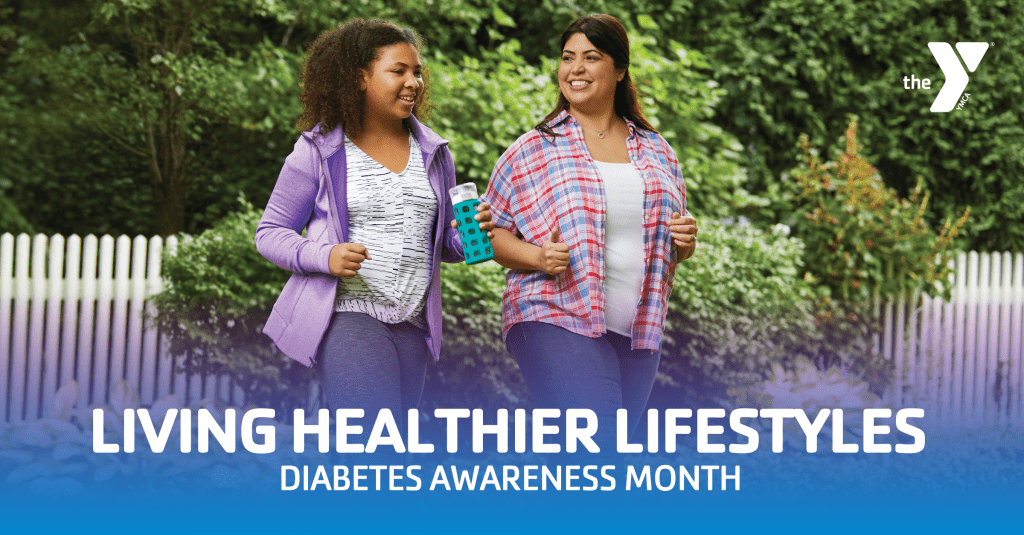Diabetes Awareness Month – Preventing Type 2 Diabetes

Here is just a small amount of information from the International Diabetes Federation (idf.org) website. Please visit the site for more information and always consult with your primary care regarding your health journey.
“Type 1 diabetes cannot be prevented, but research is ongoing to determine its environmental triggers. While type 1 diabetes cannot be prevented, there are several steps people can take to reduce the risk of developing type 2 diabetes.
Unhealthy eating habits and sedentary lifestyle associated with urbanisation are common factors contributing to the development of type 2 diabetes. There is overwhelming evidence from studies in the USA, Finland, China, India, and Japan that lifestyle changes (achieving a healthy body weight and moderate physical activity) can help prevent the development of type 2 diabetes in those at high risk.
IDF recommends physical activity at least between three to five days a week, for a minimum of 30-45 minutes.
Preventing type 2 diabetes involves a healthy lifestyle: a balanced diet, regular exercise, and avoiding sugary and processed foods. Maintaining a healthy weight is crucial as obesity increases the risk. Even a small weight loss can significantly reduce the risk of type 2 diabetes. Lastly, regular screenings and check-ups, especially for people at risk, can detect early signs and delay or prevent the onset of diabetes.

IDF recommendations for a healthier diet:
- Choose water, coffee or tea instead of fruit juice, soda, or other sugar-sweetened beverages
- Eat at least three servings of vegetables every day, including green leafy vegetables
- Eat up to three servings of fresh fruit every day
- Choose nuts, a piece of fresh fruit, or unsweetened yoghurt for a snack
- Limit alcohol intake to a maximum of two standard drinks per day
- Choose lean cuts of white meat, poultry or seafood instead of red or processed meat
- Choose peanut butter instead of chocolate spread or jam.
- Choose whole-grain bread, rice, or pasta instead of white bread, rice, or pasta.
- Choose unsaturated fats (olive oil, canola oil, corn oil, or sunflower oil) instead of saturated fats (butter, ghee, animal fat, coconut oil or palm oil.”
